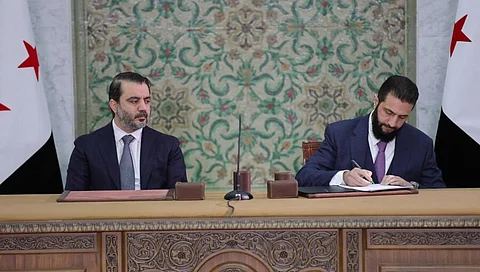

In a significant but controversial move, interim President Ahmad al-Sharaa has signed a temporary constitution that places Syria under the control of the militant group Hayat Tahrir al-Sham (HTS) for a transitional five-year period, during which no elections will be held. While the document is hailed by some as a step toward a new future, it raises important questions regarding the democratic nature of the transition and the long-term implications for Syria’s governance.
The newly signed constitution enshrines a fundamentalist interpretation of Islamic law as the primary legal framework, with provisions for the establishment of a People’s Committee, a temporary parliamentary body that will function during this transitional phase. While the constitution also promises to uphold certain freedoms, including freedom of expression, it is difficult to ignore the central role HTS will play in shaping the country’s political landscape. Given HTS’s history of strict governance in areas under its control, concerns have emerged about the extent to which the constitution can guarantee true political pluralism and the representation of Syrian voices from all sects and ethnicities. It is worth noting that HTS is still designated as a terrorist organization under US and EU law.
The constitution’s emphasis on Islamic jurisprudence as the core of Syria's legal system is a point of contention. It claims to protect freedoms, but analysts question whether these freedoms will be meaningfully implemented. HTS has been criticized for its hardline stance on religion and restrictions on personal liberties. The group’s rise to power also raises doubts about the inclusivity of Syria’s future political process, particularly for secular or minority communities who may find themselves sidelined in the new order, just days after thousands of Alawites were indiscriminately executed by Syrian Government forces.